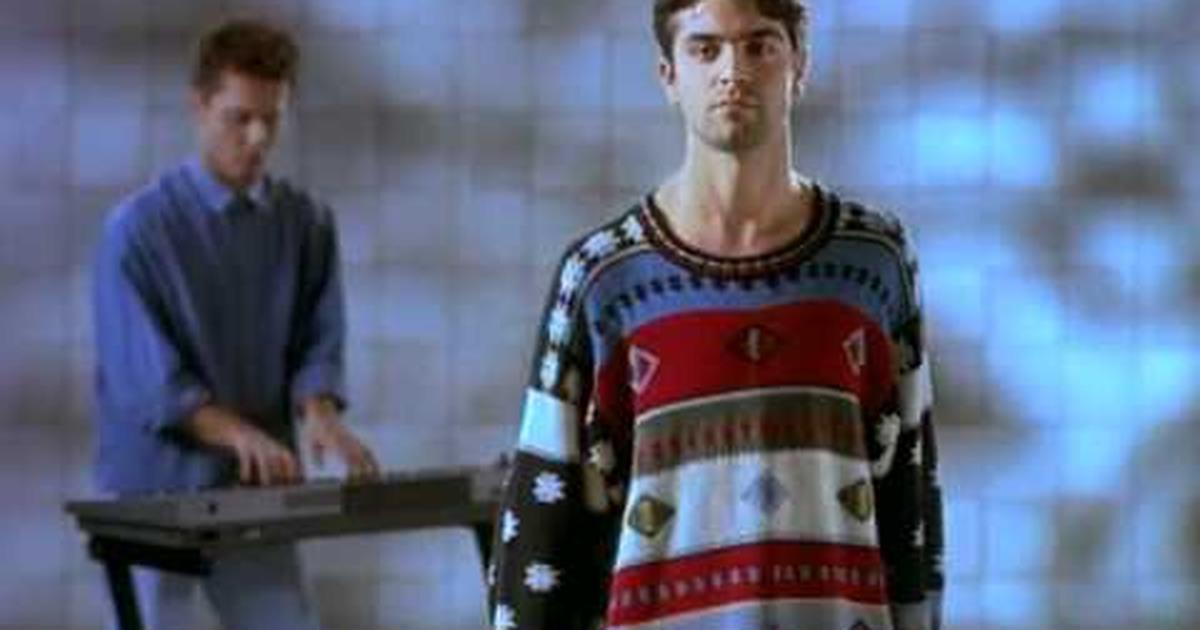
In this same vein one can recall “Giudizi Universali” (Final Judgments, Samuele Bersani, 1997), perhaps one of Bersani’s best lyrics (at least certainly one of the most interesting and well known). Emotional incommunicability and difficulties relating to others, both fixtures in Bersani’s lyrics, appear again in this very same album in another of his great commercial hits, “Spaccacuore” (Heartbreak, Freak, 1995) characterized by an intimate and seemingly autobiographical tone that remains characteristic over the course of his career (“I know who I am / even if I’ve never read Freud / I know how I’m made / but I can’t change shape”), it guaranteed his great success and popularity. In the hits that followed (from the album Freak, 1995) the same themes emerged with a cutting irony that served to strikingly depict a middle class world, one both attracted to certain global seductions of the seventies (India, the peace sign, pearl necklaces…) and yet also irrevocably linked to a deep provincialism (“have you thought again about that project of exporting the piadina from Romagna?” he asks in Freak). As a serious songwriter, he was attentive to the themes of existential alienation and incommunicability, and as a fierce critic of various aspects of Italian society, he decried its immobility and hypocrisy. Bersani presents himself – both on television and in the music video – with a performance that is simultaneously detached and intense, already demonstrating the characteristics for which he would come to be known. With an acerbic and dispassionate tone, the lyrics depict these suburbs as dirty, impoverished, and abandoned to themselves, in which two teenagers act (not differently from certain characters of literature penned by the so-called cannibal writers) seemingly in search of easy money, but perhaps even more so to escape the tedium of existence. Its catchiness is in direct contrast to its lyrics, which tell the story of two suburban boys who, looking for quick money or a cure for boredom, commit armed robbery and ultimately die in a moped accident while fleeing from the police. “Chicco e Spillo,” the first song of this emerging songwriter, became both a huge success on the radio and a summer hit, no doubt aided not only by his telegenic nature and his striking performance, but also owing to the song’s inherent power. He recalled in various interviews the great degree to which film festivals had influenced him – along, of course, with Tonino Guerra, a poet from Romagna and the screenwriter of Federico Fellini’s Amarcord, with whom he had taken a screenwriting course when he was sixteen.

In his background there is not only music (an interest that began during his teenage years), but also a passion for film that would ultimately emerge in many of his lyrics over the course of his career. So Bersani, young, personable, traveling in the same Bolognese entourage that had produced groups like the Stadium and songwriters such as Ron, immediately became famous and appeared on television’s most popular programs. Ciao.īorn in Romagna in 1970, Samuele Bersani moved at a young age to Bologna, where he was noticed by Lucio Dalla, who had him open one of his concerts with his song, “Il mostro” (The Monster). “Guarda che casino, guarda dove vai a finire, ho anche freddo,Į ho paura di morire: Stai attento! Stai attento! Frena!”. “Figli di puttana! Non ci prenderete mai!” Scappa, presto non fermarti, corri, cazzo, non voltarti!Ĭhicco e Spillo saltano come due gatti sulla sella “Lascia stare, sta un po’ zitto, non ho voglia di parlare! “Ma ti rendi conto quanti sono questi soldiįinalmente ci possiamo comperare quello che ci pare! Prendo il motorino e in un minuto sono lì”. “Sono Chicco, vieni qua, che questa volta è proprio quella buona!īasta un cacciavite per entrare in paradiso…”.

Spillo ha chiuso la felicità in un fazzoletto, Il prete prepara la chiesa per il funerale. L’ambulanza della Croce Rossa, c’è qualcuno che sta male, Sacchi d’immondizia messi come pali dai bambini, Gli africani alla stazione, l’avvocato dal barbiere,Īncora un altro film di Alberto Sordi alla televisione.Ĭhicco è a casa con la faccia sulla radioĮ a scappare senza che si slaccino le scarpeĮ andare dove non c’è mai nessuno che ti sputa contro, Vecchi materassi, copertoni, lavandini, cessi rotti, Il maresciallo guarda l’Italia dentro un bar. Sta con suo fratello che si fa chiamare SpilloĬhicco prova al sole di scaldarsi il cucchiaino,


 0 kommentar(er)
0 kommentar(er)
